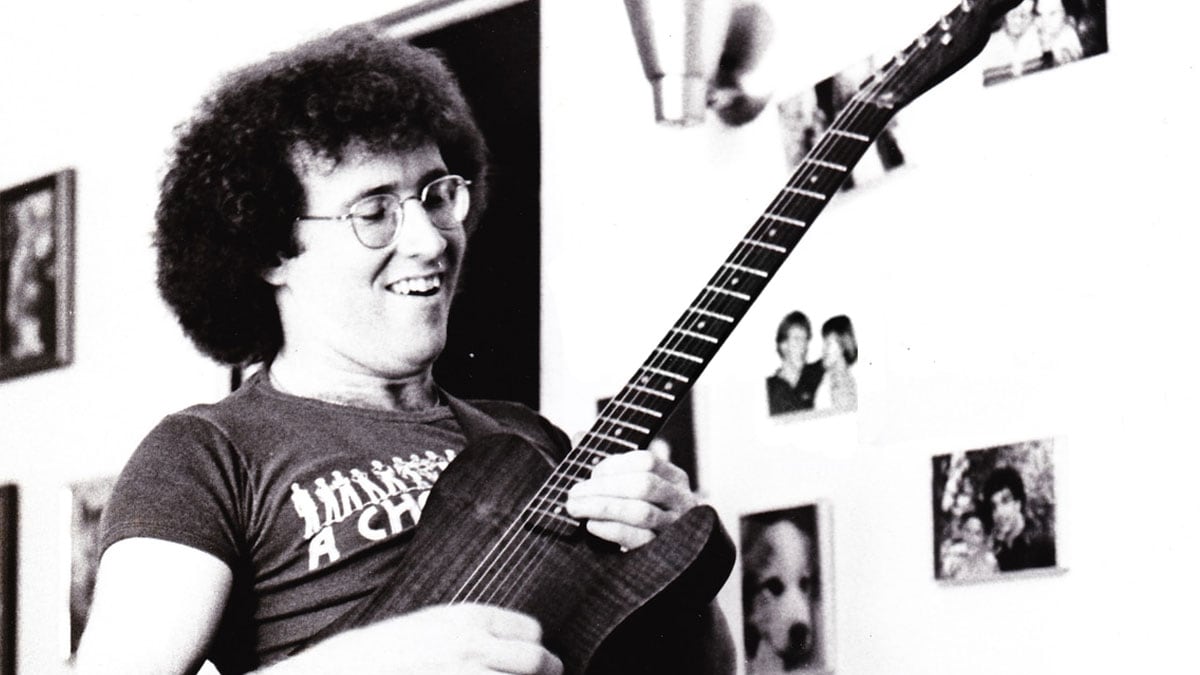Tim Ellis isn't the typical subject of a rock-'n'-roll biography. As a vital figure within Portland's music community for more than three decades, the guitarist and Kung Fu Bakery studio founder (home of albums from the Decemberists, Everclear and Pink Martini) certainly made a name for himself locally before his 2016 death from cancer at age 60, but Ellis never managed to land the major-label deal or record the hit single that would've elevated him to next-tier fame.
Ellis' tireless commitment to his craft absent the trappings of rock stardom—all while working full time and helping wife Susan raise six children—was what most interested documentarian Tiffany Ellis about her father's story. Tiffany, a video producer for Nike, sifted through hundreds of hours of home movies, recording-session footage, and episodes of Tim's '90s-era public access cable talk show to create a full portrait of the man as both consummate musician and loving parent. As she readies her debut feature for its Hollywood Theatre premiere on Nov. 14, Tiffany sat down with WW to discuss the bittersweet challenges of exploring her father's life after his passing.
WW: How did the movie come together?
Tiffany Ellis: In February of 2016, my dad was dying of stage four cancer, and there was a massive fundraiser for his medical expenses at Revolution Hall that sold out in six days. It was like This Is Your Life but, you know, Portland music style, with almost a thousand people there. As his kid, I was like, "Who are all these people?" Just seeing the sheer number of musicians he touched over the years, that was my first opportunity to really understand the level of his impact outside of my family circle.
A few months after his death, I decided this project would help me get to know my dad better. I interviewed almost 40 musicians to find out more about my dad and who he touched and what he did while he was on this earth. All of this material helped me craft the story and, honestly, process my loss.
As a kid, how much did you know about his career?
I remember hearing stories about the musicians he encountered working at the studio. Shaquille O'Neal went there for a rap video. Willie Nelson came by. The Fugees. A lot of big bands would record or mix some music while blowing through town, and my dad facilitated that experience.
Was any of that captured?
The behind-the-scenes footage from Kung Fu Bakery was a real find. Not a lot of people really understand what the process of recording an album looks like, so we structured the film around these sessions of musicians collaborating in that studio. My dad hosted a public access television show in the '90s, and the guy who owned that station donated all the episodes. You can track time just through the hairstyles. A lot of archival clips are just, like, '80s hair bands being super '80s hair band-y. Then everybody's wearing their hair long and flannel for the '90s grunge thing.
Did you learn anything unexpected?
One of the things that inspired the film was that my father always seemed like such a typical parent when I was growing up. One question people have asked me over the years is what it was like to have Tim as a father, and I was always like, "Doesn't everyone have a father like him?" As I've gotten older, I started to realize how amazing his commitment was not only to our family, but also his craft.
How did he balance his work life and his music life?
A lot of it was about just going out there—playing small gigs, playing big gigs, and getting to know as many people as he possibly could by taking advantage of every opportunity. At the same time, he had a full-time job as a manager for a car stereo superstore. He'd work all day, rush home to eat a quick dinner, change, leave for a gig, come home at 2 in the morning, and do it all over again. It was a hustle for a long time. My dad never wanted to give up music, so it was just about pivoting and figuring out how to make things work.
Did he manage to make everything work?
To be perfectly frank, there are a lot of great films out there about musicians, but a lot of those films are about amazingly talented musicians who are really shitty parents. I wasn't deliberately trying not to tell that story. It's just not his story. To me, this story's really about choosing to pursue your craft while also having a family. He never "made it." He never got that elusive record deal or No. 1 hit. I think it's valuable to tell his story because a lot of people can relate, especially in a town like Portland. We're a very creative community, but in a gig economy, it's really hard to make a living through pursuing your craft, whatever that craft may be. This is a story about somebody who found a way to make that work for him and the people he cared about.
SEE IT: This Is Tim: A Musical Life screens at Hollywood Theatre, 4122 NE Sandy Blvd., hollywoodtheatre.org, on Thursday, Nov. 14. 7:30 pm. $20.

